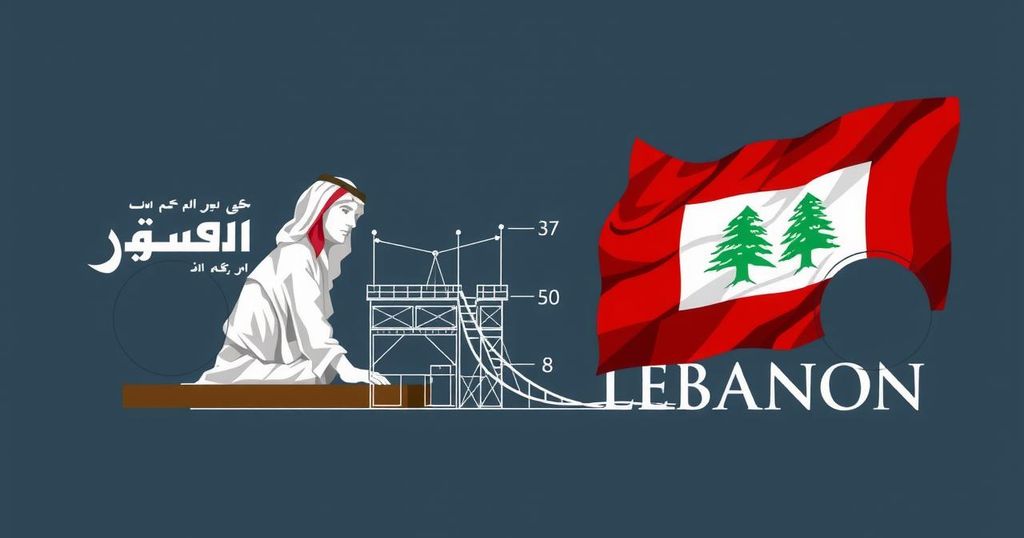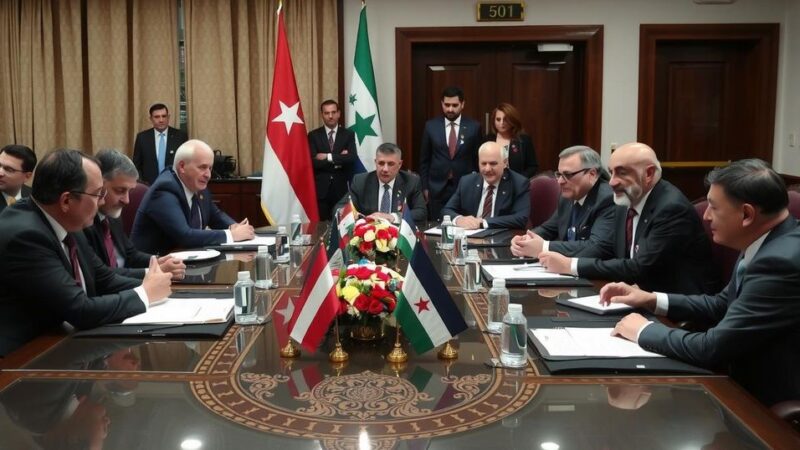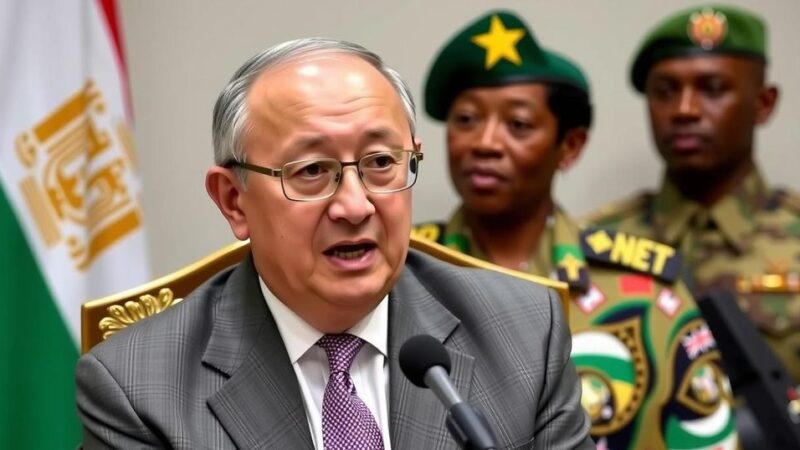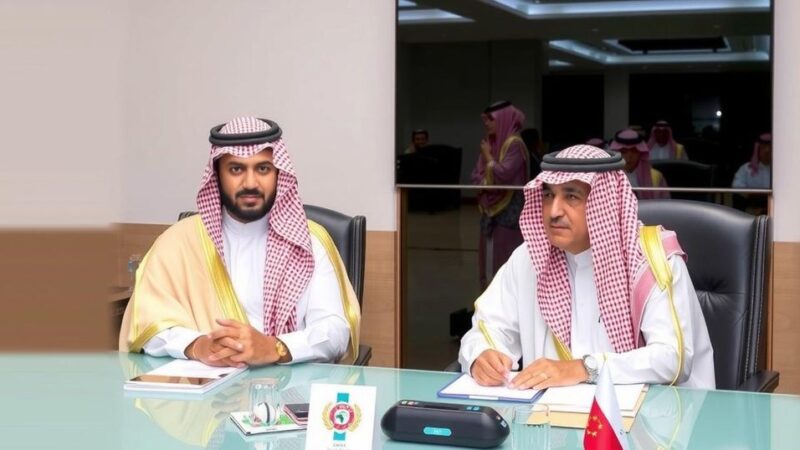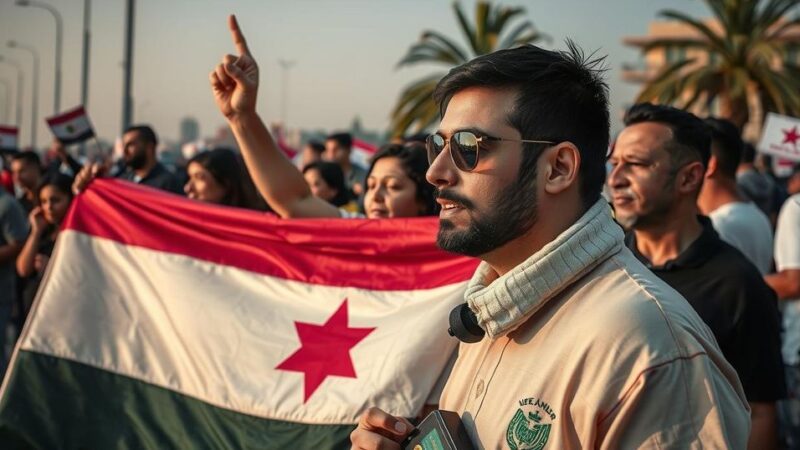Secretary of State Antony Blinken concluded a week of diplomatic engagements focused on resolving conflicts in Gaza and Lebanon. In meetings with leaders from the UAE, Jordan, and Lebanon, he emphasized the urgency of ending hostilities, implementing UN resolutions, and ensuring humanitarian support for affected populations. The discussions highlighted the critical partnership with Jordan and the necessity for diplomatic solutions amidst escalating regional tensions.
In a significant culmination of diplomatic efforts, Secretary of State Antony Blinken concluded a week of high-level discussions aimed at resolving critical issues in the Middle East. On Friday, he met in London with key figures including UAE Foreign Minister Sheikh Abdullah bin Zayed Al Nahyan, Lebanese Caretaker Prime Minister Najib Mikati, and Jordanian Deputy Prime Minister Ayman Safadi. In his discussions with Sheikh Abdullah, Blinken focused on endeavors to bring an end to the ongoing conflict in Gaza and to secure the release of hostages. They also conversed about plans for the post-conflict phase in the region, as articulated by State Department Press Secretary Matthew Miller. During his dialogue with Prime Minister Mikati, Blinken reaffirmed the United States’ commitment to a diplomatic solution to the Lebanese conflict in line with United Nations Security Council Resolution 1701, which aims to facilitate the safe return of displaced individuals to their homes on either side of the Israel-Lebanon border. He expressed gratitude towards the UAE for its ongoing humanitarian aid efforts for Lebanon and Gaza. Blinken underscored the crucial role that Iran and Hezbollah play in Lebanon’s stability and security, emphasizing that they should not impede progress. He also expressed support for the UN Interim Force in Lebanon, reiterating that the safety of its personnel is non-negotiable. Furthermore, he highlighted the necessity of empowering Lebanon with leadership that genuinely represents the people’s will, particularly in light of the country’s ongoing presidential vacancy. In remarks to the press prior to his meeting with Ayman Safadi, Blinken characterized Jordan as a vital partner to the United States in regional debates, particularly in offering support to Palestinians in Gaza. He emphasized the need for immediate diplomatic engagement to stabilize the situation in Lebanon and achieve security along the Israel-Lebanon border. Safadi, in voicing grave concerns, asserted that the region teeters on the brink of war, urging Israel to halt its military actions in Gaza and Lebanon, as well as illegal measures in the West Bank. He emphasized the need for diplomacy to prevail over warfare, with a clarion call for the preservation of life and peace in the region. Throughout these discussions, Blinken reiterated his priority for a diplomatic resolution to the ongoing violence, affirming the necessity of protecting civilian lives and ensuring that military engagements do not endanger the Lebanese Armed Forces or civilians in urban centers. The week’s diplomatic interactions reflect urgent attempts to address a turbulent regional landscape marked by conflict, humanitarian crises, and the pressing need for collaboration among nations involved.
The Middle East has been a focal point of international diplomatic efforts, particularly with ongoing tensions in Gaza and instability in Lebanon. Secretary Antony Blinken’s recent meetings highlight the critical nature of diplomacy in addressing humanitarian crises and regional security concerns. The discussions emphasize the importance of United Nations Security Council resolutions aimed at fostering peace and stability in these areas, particularly in relation to the conflicts affecting civilian populations.
In conclusion, Secretary Blinken’s strategic discussions with key Middle Eastern leaders underscore the urgent need for a diplomatic resolution to ongoing conflicts in the region, particularly in Gaza and Lebanon. The commitment to uphold humanitarian standards and pursue collaborative efforts among regional partners plays a crucial role in paving the way for peace and stability, emphasizing the value of responsible leadership and international cooperation in this complex geopolitical landscape.
Original Source: www.jpost.com

